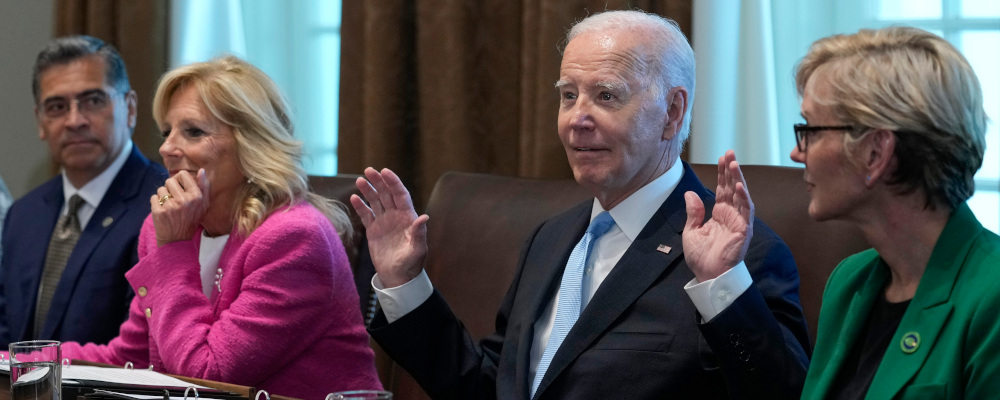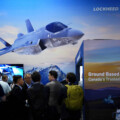Our neighbours to the south are in the midst of an awe-inspiring space race, and it has nothing to do with a trip to Mars.
Building on a 2016 project started while he was last in the White House, President Joe Biden has re-launched America’s “Cancer Moonshot—a mission to reduce cancer death rates by at least 50 percent within the next 25 years; a goal that, if achieved, would prevent more than 4 million Americans from dying of cancer by 2047. With expanded emphasis on the organizational features of cancer care—including access, equity, and engagement—President Biden’s renewed commitment to “end cancer as we know it” includes: the creation of a White House Cancer Moonshot coordinator in the executive office of the president; the formation of a cancer cabinet to ensure departments across government are taking a coordinated approach to cancer care; and the hosting of a White House Cancer Moonshot summit that convenes policymakers, patient organizations, industry, and researchers to help spread best practice.
The Cancer Moonshot has spurred dozens of new programs across five priority areas: expanding access to cancer screenings; understanding toxic and environmental exposures; preventing more cancers before they start; driving innovation and delivering progress to patients; and supporting patients and caregivers. Specific measures range from expanded coverage for lung cancer screening with low-dose computed tomography to funding of an inaugural cohort of Cancer Moonshot scholars, to the expansion of the U.S. Patent and Trademark Office’s program expediting patents for innovations that detect and treat cancer. The Moonshot is supporting the development of tumor atlases, as well as the expansion of telemedicine in cancer care. In fact, President Biden’s Moonshot has even supported breakthrough research out of the University of British Columbia.

At a time when complex public policy systems—and perhaps health-care systems, in particular— can feel stalled or even backward moving, cancer care leaders in the U.S. are projecting a remarkable degree of optimism and backing that up with an acceleration of research, care, and the organizational infrastructure needed to scale innovation quickly. If, in the next few years, the diverse coalition driving the Moonshot can demonstrate credible progress toward the fifty-percent target set by the president, the global cancer community could and should be recalibrated in ways that haven’t been seen in the disease’s epidemiological history, notwithstanding countless breakthroughs to date. Should President Biden deliver on his cancer care ambitions, or illustrate other benefits of disruptive thinking on cancer care, one can imagine a surge of international emulation, cooperation, healthy competition, scaling, and compounding advances. Something more akin to the building of an international space station than the launching of a bigger and faster rocket.
Given this potential global spillover, folks north of the forty-ninth parallel and committed to improved cancer care will naturally be asking: how are Canadian healthcare systems getting ready for this new era of exploration? And, perhaps more ambitiously, is there a uniquely Canadian contribution that we can make—a Canadarm of cancer care?
Strictly speaking, health-care systems on this side of the border haven’t declared formal positions on President Biden’s Moonshot or borrowed from his interstellar vernacular. Regardless of rhetorical alignment, however, our health-care systems are—and will surely continue to be—major contributors to scientific breakthroughs in the detection and treatment of cancer. Whether it is recent advances in CAR T cell therapy or our very early leadership in radiation oncology, Canada is a country of cancer conquerors. And as a result of such advances, our provinces can already boast some of the best cancer survival rates in the world. Impressive efforts are also underway to significantly increase our research capacity related to low-survival cancers.
But critically, if we limit ourselves to thinking about medical science as the sole venue for Canada’s past and future cancer care contributions, then we miss one of the major evolutions of President Bident’s revised Cancer Moonshot—as well as the great virtue of Canadian health care. Namely, we fail to acknowledge that the way we govern our health-care systems is as important as the science and technology that underly them; and that Canada offers one of the most diverse and dynamic, and thus instructive, systems of health-care governance on the planet, in the form of thirteen laboratories of administrative inventiveness, each offering a formidable combination of scale, scope, and autonomy.

Through the miracles of federalism, each of our provincial-territorial health-care systems has the critical mass to resource virtually any novel treatment regime, while also having the independence needed to scale fast. Each province and territory can target its health-care strategies to the eccentricities of its population and institutional history; perhaps prioritizing those disease states that most match demographic trends or regional expertise. And each province and territory can move with agility between the front lines of care, patient engagement, and the bulky policy apparatuses that steer such activity—all integral to building cultures of continuous improvement. Our provincial health-care systems can broadcast to the world not one, two, or thirteen models of innovation in cancer care governance, but countless organizational paradigms each drawing on or building up a regional expertise.
So, to mix the metaphor even more thoroughly, in addition to the international cancer space race not truly being a race, maybe it’s not international either. For Canadians, matching the daring of the U.S. ambition is essential, but beyond that, our primary focus should be on balancing cooperation between our various provincial and territorial systems to leverage every ounce of local talent and creativity to generate a made-in-Nunavut, -Quebec, or -PEI revolution in cancer care.
In other words, for cancer care leaders across Canada, the Cancer Moonshot is a space race that can and should be won, but just in our own way: a friendly competition that is responsive to the particularities of regions and peoples and is fearless of doing many things differently and then borrowing the best and tested from each other.
When you live next to a country that has regularly demonstrated that bigger can be better, you work hard to find ways to show that small can be beautiful and that diversity of tactics is its own kind of ambition. Perhaps when it comes to the future of cancer care, both will be true.
Recommended for You

DeepDive: Under pressure: How immigration is becoming a political fault line in Canada

Andrew Leslie: A bold step forward for Canada’s defence

Renze Nauta: Nearly seven million Canadians are in the working class. Their growing struggles deserve the spotlight

Sean Speer and Taylor Jackson: Slow economic growth is the biggest challenge facing Canada. The Hunter Prize for Public Policy is here to solve it



